Hydrogen Peroxide For Teeth Whitening – 6 Home Remedies
Your easy solution to a brighter smile as long as you be mindful of the precautions.
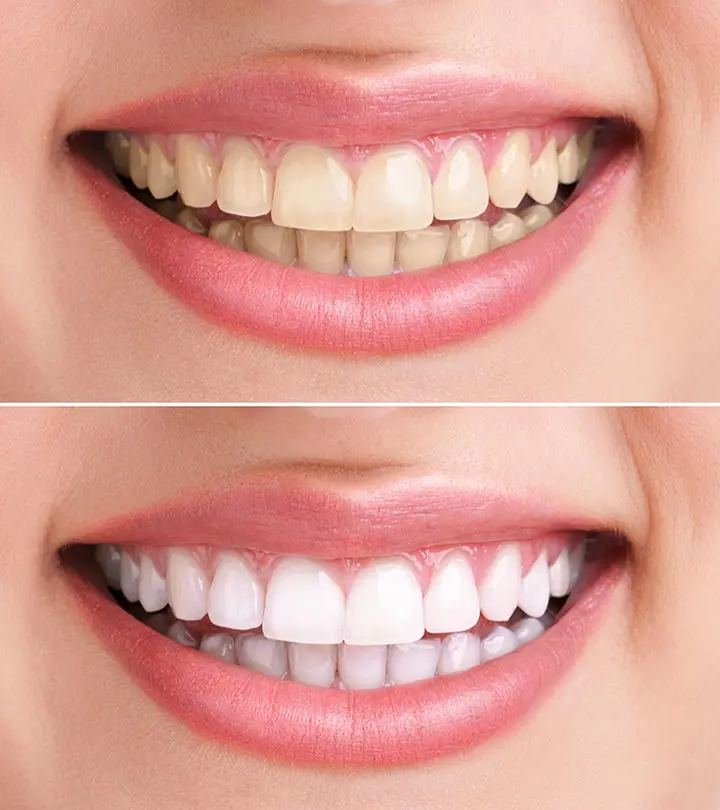
Image: Shutterstock
If you are not satisfied with the results of specialized teeth whitening gels toothpastes, try hydrogen peroxide for teeth whitening. While even the popular dental whitening strips could pose the risk of damaging the enamel, this easy home remedy presents a safe alternative.
This simple ingredient could be used conveniently at home to whiten your teeth. In this article, we have explored the different ways hydrogen peroxide could be used as a remedy to help whiten teeth.
In This Article
Is Hydrogen Peroxide Good For Teeth Whitening?
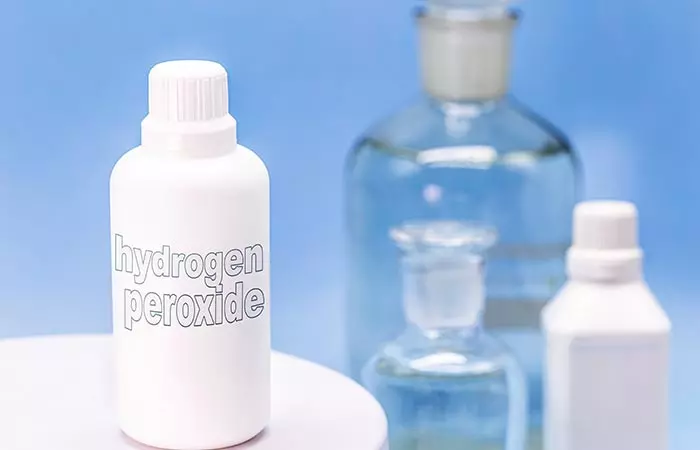
Hydrogen peroxide is effective and does not cost much. Some of its key properties include:
- It is a chemical lightening agent that helps whiten teeth by penetrating the enamel (1).
- It possesses antimicrobial properties that can benefit people with oral ailments like plaque and gingivitis (2).
- It can counter bad breath by eliminating the odor-causing bacteria from the mouth (3). However, do not use hydrogen peroxide directly for this purpose as it may cause mucosal abnormalities. Consult your doctor for the right method.
Thanks to its antiseptic and disinfectant properties, hydrogen peroxide has been used for ages for cleaning purposes and to heal wounds. It is getting popular as a DIY teeth whitening agent, and in the following section, we will see how it works.
Key Takeaways
- Hydrogen peroxide contains a chemical that may help to whiten teeth and prevent oral problems like plaque.
- Gargle with hydrogen peroxide to whiten your teeth.
- You may also add baking soda, Listerine, or lime juice for effective results.
- Avoid continuously using it as it may harm your teeth.
- Avoid swallowing hydrogen peroxide as it may cause gastric issues
How To Use Hydrogen Peroxide To Whiten Teeth
- Gargling With Hydrogen Peroxide
- Using Cotton Swab And Hydrogen Peroxide
- Baking Soda And Hydrogen Peroxide
- Listerine And Hydrogen Peroxide
- Hydrogen Peroxide And Lemon Juice
- Hydrogen Peroxide And Salt
Whiten Teeth With Hydrogen Peroxide Using These Methods
1. Gargling With Hydrogen Peroxide
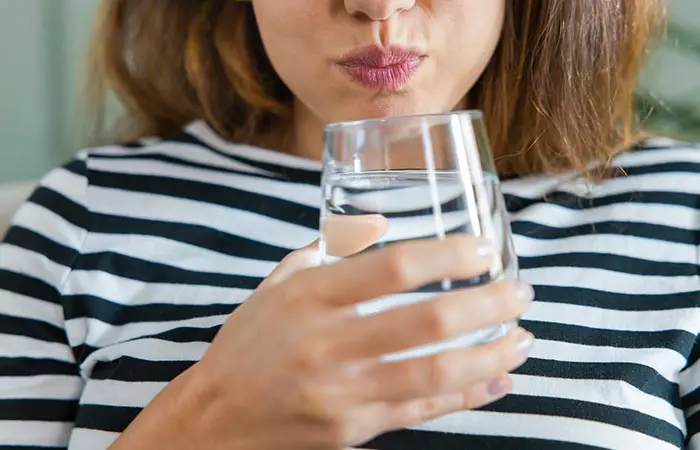
The peroxide solution helps remove all harmful bacteria from your oral cavity and lighten the yellow stains on your teeth.
You Will Need
- 1 tablespoon of 3% hydrogen peroxide
- 1 tablespoon of water
What You Have To Do
- Mix the two liquids and swish the mixture in your mouth for 2-3 minutes.
- Spit it out and rinse your mouth with plain water.
How Often You Should Do This
You can do this 2-3 times a week.
2. Cotton Swab And Hydrogen Peroxide
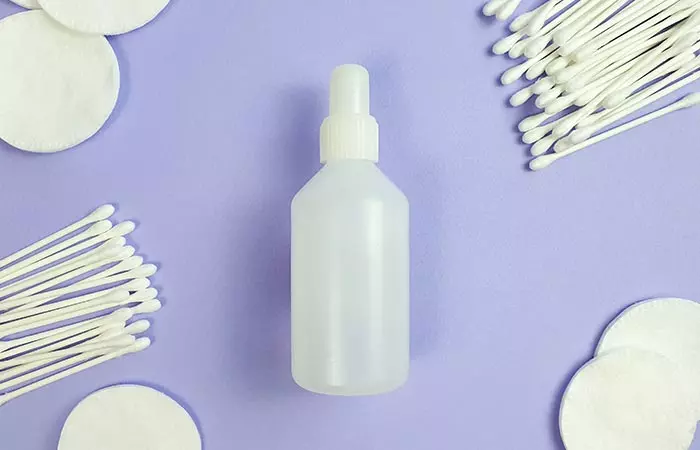
This can be an alternative to swishing the hydrogen peroxide solution in your mouth. The cleaning properties of hydrogen peroxide play a role here. However, this method may not be as effective as the hydrogen peroxide gargle.
You Will Need
- 3% hydrogen peroxide solution
- A cotton swab
What You Have To Do
- Dip the cotton swab in the solution and rub it against your teeth.
- Leave the hydrogen peroxide on for a minute or two and then rinse your mouth with water.
How Often You Should Do This
Repeat this 2-3 times a week.
Tina Engeo, a beauty, health, and lifestyle vlogger, tried the cotton swab and hydrogen peroxide teeth whitening method and shared her thoughts on her channel. She says, “I do have pretty okay teeth to begin with. On the parts that are near the gums, it does seem a little bit more yellow, and I just feel like it [hydrogen peroxide] fixed it a little bit (i).”
3. Baking Soda And Hydrogen Peroxide
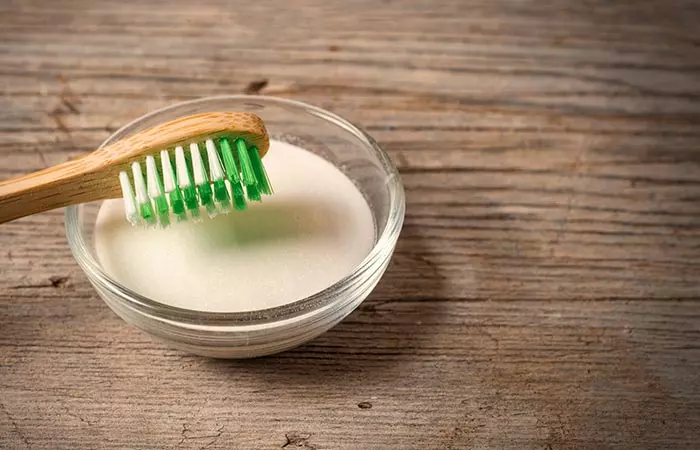
The coarseness of baking soda helps break down the yellow stains on the teeth. It basically acts as an abrasive agent. It also has teeth whitening properties (4). While there are many ways to use baking soda to whiten your teeth, one of them is to mix it with hydrogen peroxide.
You Will Need
- 1 teaspoon of baking soda
- 3% hydrogen peroxide solution
- A toothbrush
What You Have To Do
- Add enough peroxide solution to the baking soda to get a paste of medium consistency.
- Transfer this paste onto your toothbrush and brush your teeth with it.
How Often You Should Do This
Use this DIY teeth whitening toothpaste 2 times a week.
4. Listerine And Hydrogen Peroxide
While the hydrogen peroxide whitens your teeth, Listerine helps clean your teeth and oral cavity, thereby killing all harmful bacteria
(5). This may also help whiten teeth.
You Will Need
- 1 part Listerine mouthwash
- 1 part hydrogen peroxide
What You Have To Do
- Mix the ingredients and use the mixture as a mouthwash to rinse your mouth.
- Do not forget to do a final rinse with clean water.
How Often You Should Do This
You can use this peroxide mouthwash 3 times a week.
5. Hydrogen Peroxide And Lemon Juice
Lemon juice can act as a natural dental bleaching agent. Studies show that lemon extract and peel contain citric acid, which can help bleach the stains on the enamel (6).
You Will Need
- 1 teaspoon of baking soda
- A few drops of lemon juice
- 2 tablespoons of hydrogen peroxide
What You Have To Do
- Add a few drops of lemon juice and hydrogen peroxide to the baking soda.
- Mix everything well and apply this paste to your teeth.
- Leave it on for a minute or two.
- Rinse your mouth thoroughly with water.
How Often You Should Do This
Do this 1-2 times a week.
6. Hydrogen Peroxide And Salt
The coarseness of salt can help dislodge the yellow stains on your teeth and aid teeth whitening.
You Will Need
- 2 tablespoons of hydrogen peroxide
- 1 tablespoon of salt
What You Have To Do
- Mix the two ingredients and rub this paste against your teeth with either a toothbrush or your fingertip.
- Rub gently for 1-2 minutes and then rinse your mouth.
How Often You Should Do This
Repeat this 2 times a week.
7. Hydrogen Peroxide And Charcoal
This natural teeth-whitening method combines the cleansing properties of hydrogen peroxide and activated charcoal. Hydrogen peroxide acts as a gentle bleach, while anecdotal evidence suggests that charcoal absorbs stains and toxins, effectively brightening the teeth and removing surface discoloration.
What You Will Need
- Hydrogen peroxide (3% solution)
- Activated charcoal powder
- A clean toothbrush
- Water
What You Will Have To Do
- Mix a small amount of activated charcoal powder with a few drops of hydrogen peroxide to form a paste.
- Dip a clean, damp toothbrush into the charcoal-peroxide paste and brush your teeth gently for 2-3 minutes.
- Spit out the charcoal mixture and rinse your mouth thoroughly with water until all the residue is removed.
How Often You Should Do This
Once or twice a week.
Once you see some results, discontinue using hydrogen peroxide for a couple of weeks (you may resume again if needed). Continuous usage of hydrogen peroxide can harm your teeth. It can damage the oral tissues (7). Also, refrigerate hydrogen peroxide once you purchase it to keep it in its stabilized form for longer.
 Quick Tip
Quick TipWhile hydrogen peroxide solution has the approval of the American Dental Association, and top dentists also recommend it for teeth stain removal, you need to proceed with caution (8). It can cause side effects in some people.
Are There Any Side Effects Of Using Hydrogen Peroxide On Teeth?

- Using hydrogen peroxide solution can cause temporary gum irritation or tooth sensitivity (8). However, this may subside soon in most cases.
- Never swallow hydrogen peroxide solution as it may interact with the stomach acids and cause gastrointestinal issues (9).
- If ingested, hydrogen peroxide can cause injury in the esophagus (10).
- It is not recommended to use this compound to remove stains from children’s teeth.
- It may not be a good idea to use and combine hydrogen peroxide with OTC teeth whitening products like an at-home whitening pen. Doing so may result in enhanced gum irritation and enamel erosion. There is a lack of direct evidence in this regard, so talk to your dentist.
It is essential to use it with caution and follow proper guidelines to avoid potential risks and complications. Here are some precautions to keep in mind:
- Avoid concentrations higher than 3% as it can increase the risk of tooth sensitivity, gum irritation, and enamel erosion.
- Do not leave hydrogen peroxide on your teeth for longer than the recommended time, as prolonged exposure can increase the risk of side effects.
If you experience any adverse reactions, discontinue use immediately and consult a dentist.
 Quick Tip
Quick TipInfographic: Top 5 Ways To Use Hydrogen Peroxide For Teeth Whitening
Teeth whitening appointments can be time-consuming and expensive, and the teeth whitening toothpastes on the market may not give you the desired results. The good news is that you can use a natural bleaching agent, like hydrogen peroxide, to whiten your teeth at home. Check out the infographic below to know more!

Illustration: StyleCraze Design Team
Poor dental hygiene and excessive consumption of caffeinated and sugary beverages can lead to tooth discoloration, senstivity and stains on your enamel making it look off-white or yellow. While getting a dentist-supervised whitening done is always an option, you can also try hydrogen peroxide for teeth whitening at home. With its antibacterial properties, it helps provide relief from plaque and gingivitis as well. Consider gargling with a dilution of hydrogen peroxide or use it in a baking soda solution to get the best results. However, consult a dentist before including hydrogen peroxide in your dental care routine.
Frequently Asked Questions
How long does it take for hydrogen peroxide to whiten teeth?
Hydrogen peroxide may start showing its teeth whitening effects in 30 minutes to 24 hours. However, the amount of time it will take to completely whiten the teeth depends on the condition of the teeth and severity of staining.
Is 3% hydrogen peroxide safe for teeth?
Yes. 3% hydrogen peroxide is considered to be safe for teeth. However, it is advised to use it with caution.
Is it safe to brush your teeth with hydrogen peroxide and baking soda?
Yes. It is safe to use 3% hydrogen peroxide and baking soda for brushing teeth. However, individuals with sensitive teeth and gums may experience some irritation. In that case, it should not be continued.
Illustration: Hydrogen Peroxide For Teeth Whitening - 6 Home Remedies
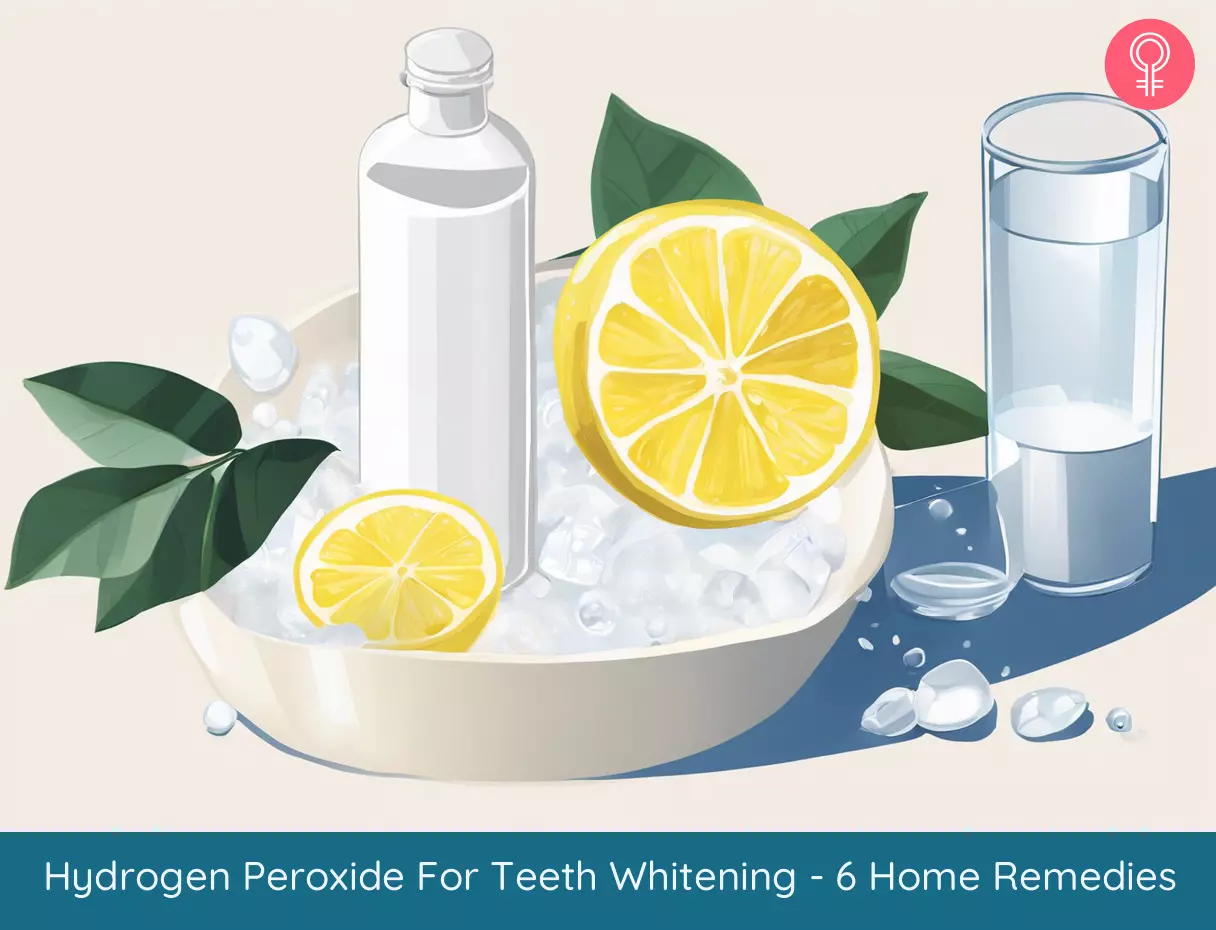
Image: Stable Diffusion/StyleCraze Design Team
Can hydrogen peroxide really whiten your teeth? Find out in this video that explores the science behind it and whether it live up to the claim.
Personal Experience: Source
StyleCraze's articles are interwoven with authentic personal narratives that provide depth and resonance to our content. Below are the sources of the personal accounts referenced in this article.
i. Teeth Whitening At Home With Hydrogen Peroxide 3%https://www.youtube.com/watch?v=w04TOdPLcYs
References
Articles on StyleCraze are backed by verified information from peer-reviewed and academic research papers, reputed organizations, research institutions, and medical associations to ensure accuracy and relevance. Read our editorial policy to learn more.
- Tooth whitening with hydrogen peroxide in adolescents: study protocol for a randomized controlled trial, Trials, US National Library of Medicine, National Institutes of Health.
https://www.ncbi.nlm.nih.gov/pmc/articles/PMC4201687/ - Effect of hydrogen peroxide on developing plaque and gingivitis in man, Journal of Clinical Periodontology, US National Library of Medicine, National Institutes of Health.
https://pubmed.ncbi.nlm.nih.gov/379049/ - Efficacy of chlorhexidine, hydrogen peroxide and tulsi extract mouthwash in reducing halitosis using spectrophotometric analysis: A randomized controlled trial, Journal of Clinical and Experimental Dentistry, US National Library of Medicine, National Institutes of Health.
https://www.ncbi.nlm.nih.gov/pmc/articles/PMC6599699/ - Effectiveness of a new dentifrice with baking soda and peroxide in removing extrinsic stain and whitening teeth, The Journal of Clinical Dentistry, US National Library of Medicine, National Institutes of Health.
https://pubmed.ncbi.nlm.nih.gov/23210419/ - Effect of listerine on dental plaque and gingivitis, Scandinavian Journal of Dental Research, US National Library of Medicine, National Institutes of Health.
https://pubmed.ncbi.nlm.nih.gov/1094528/ - Comparison between the effect of commercially available chemical teeth whitening paste and teeth whitening paste containing ingredients of herbal origin on human enamel, Ayu, US National Library of Medicine, National Institutes of Health.
https://www.ncbi.nlm.nih.gov/pmc/articles/PMC6369603/ - Safety Issues Relating to the Use of Hydrogen Peroxide in Dentistry, Australian Dental Journal, US National Library of Medicine, National Institutes of Health.
https://pubmed.ncbi.nlm.nih.gov/11225528// - Safety issues of tooth whitening using peroxide-based materials, US National Library of Medicine, National Institutes of Health
https://pubmed.ncbi.nlm.nih.gov/23846062/ - Hydrogen peroxide poisoning, Toxicological Reviews, US National Library of Medicine, National Institutes of Health.
https://pubmed.ncbi.nlm.nih.gov/15298493/ - Accidental ingestion of 35% hydrogen peroxide, Canadian Journal of Gastroenterology, US National Library of Medicine, National Institutes of Health.
https://www.ncbi.nlm.nih.gov/pmc/articles/PMC2658134/
Read full bio of Dr. Thomas Connelly
Read full bio of Shaheen Naser
Read full bio of Arshiya Syeda
Read full bio of Dipti Sharma





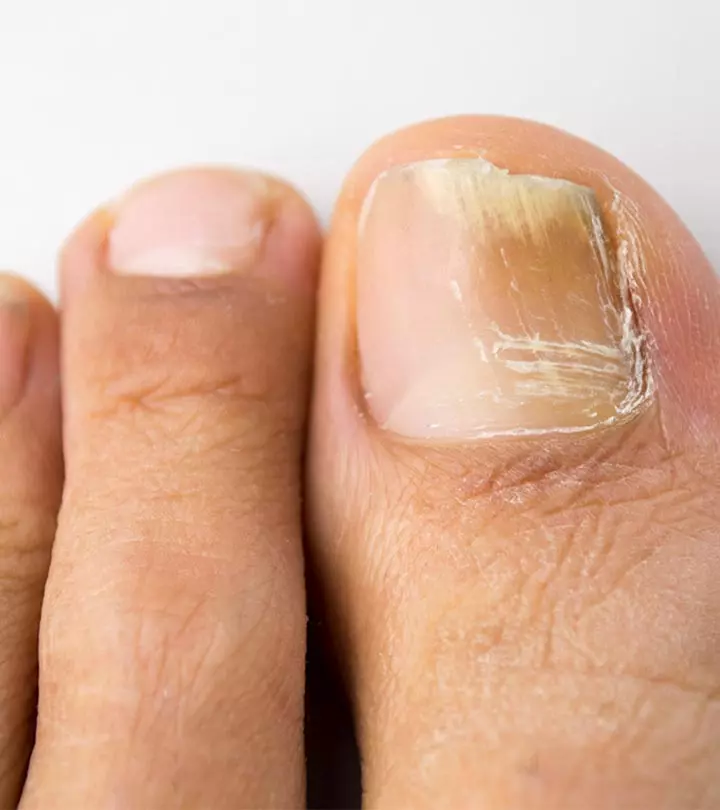

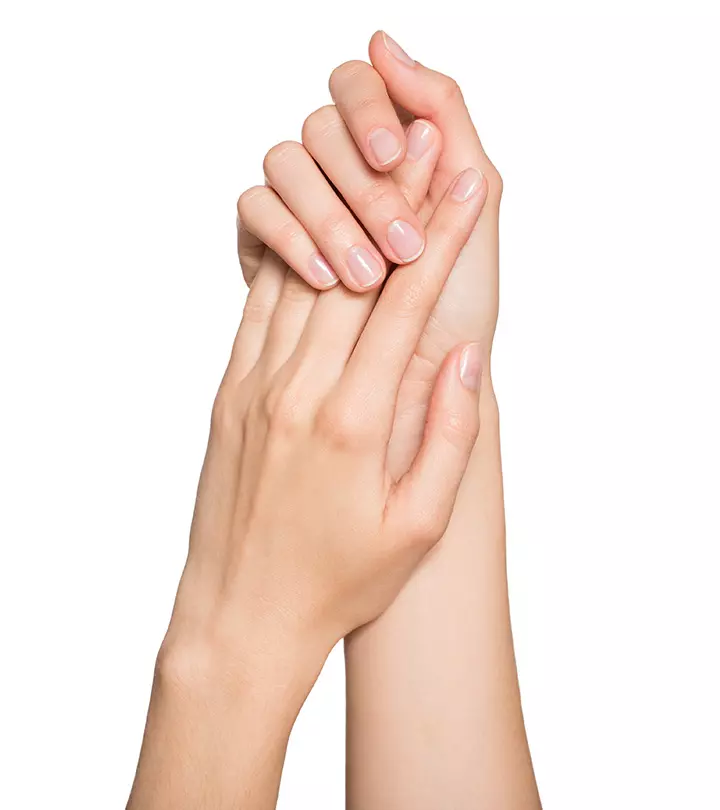


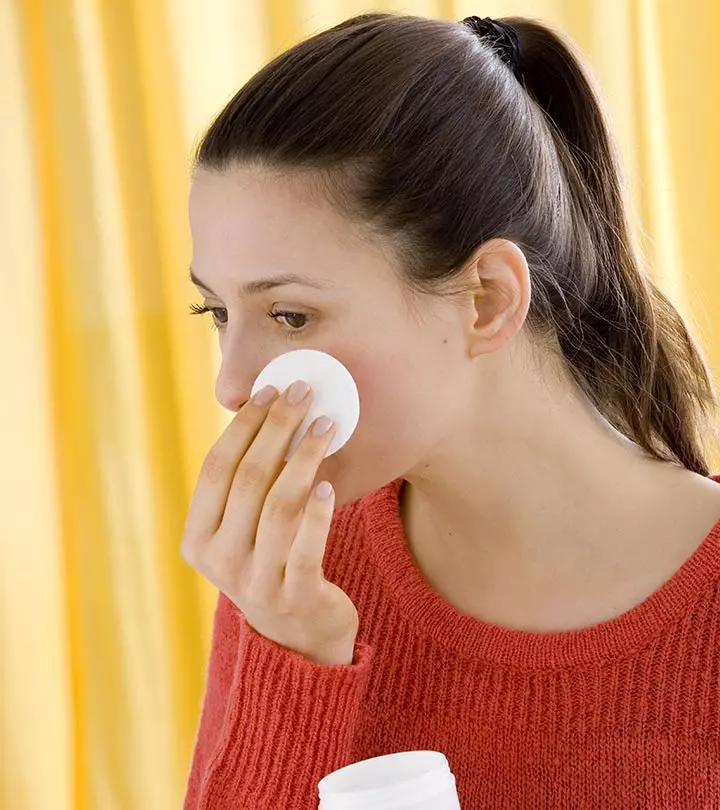
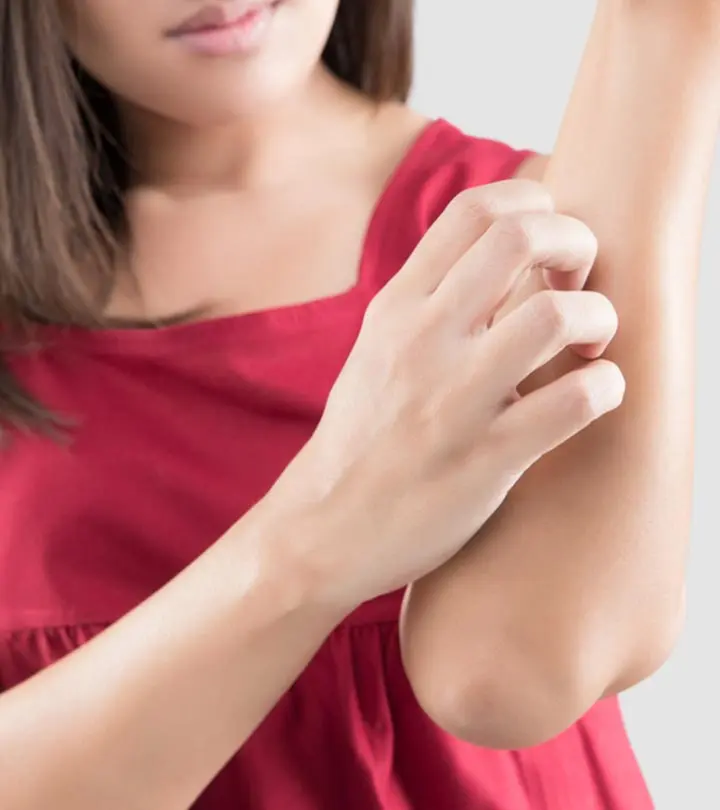
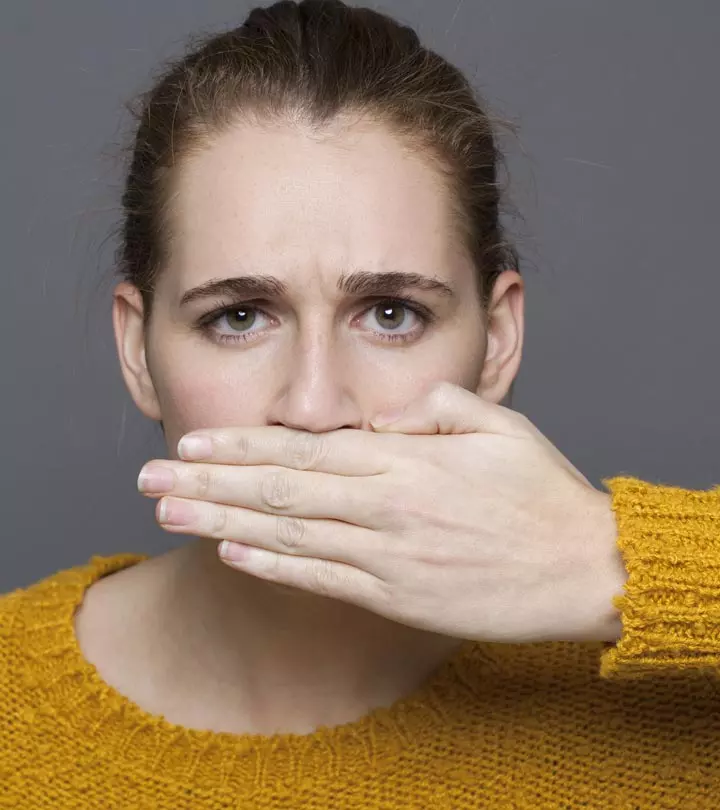



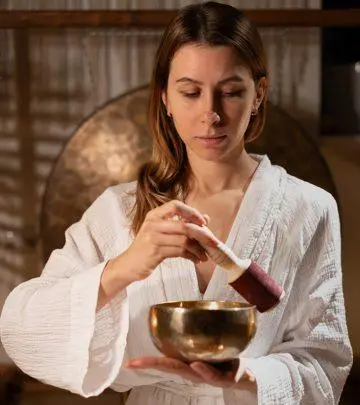
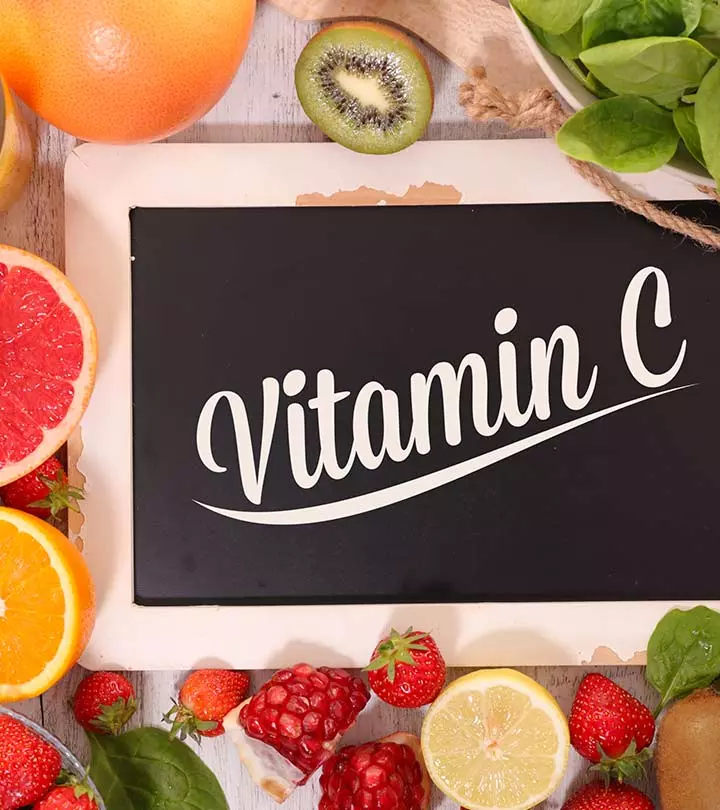

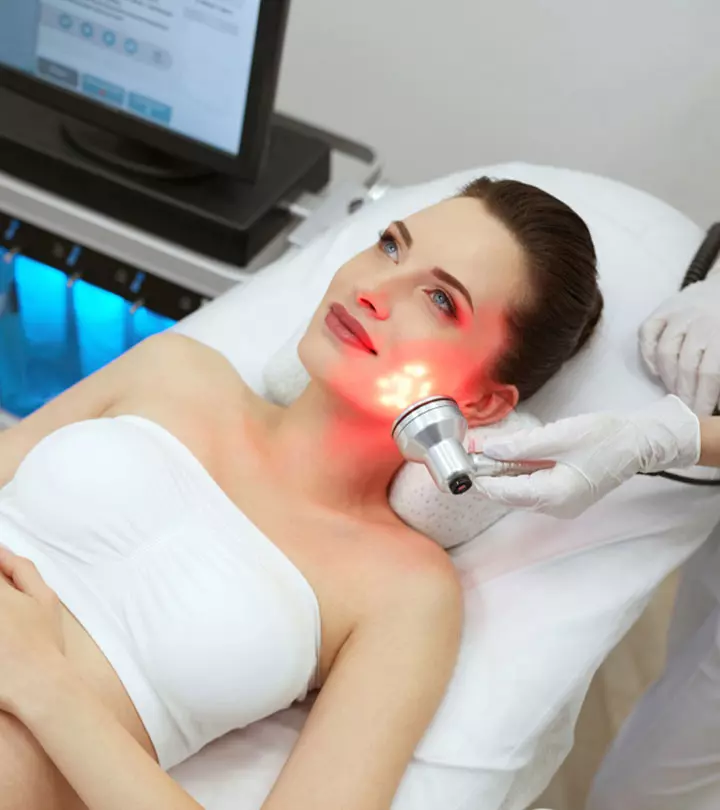
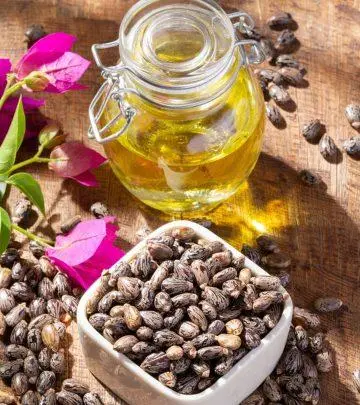
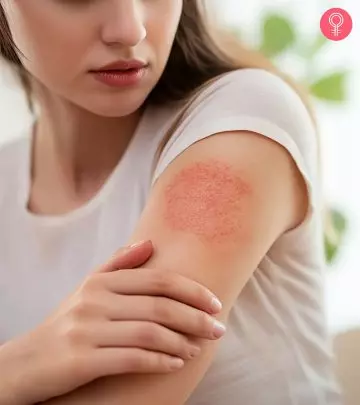
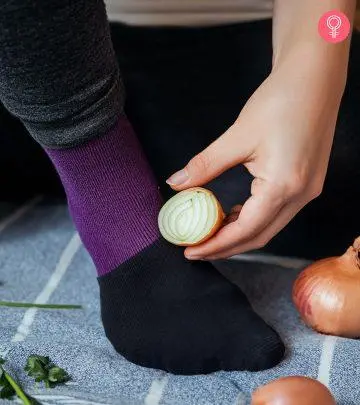


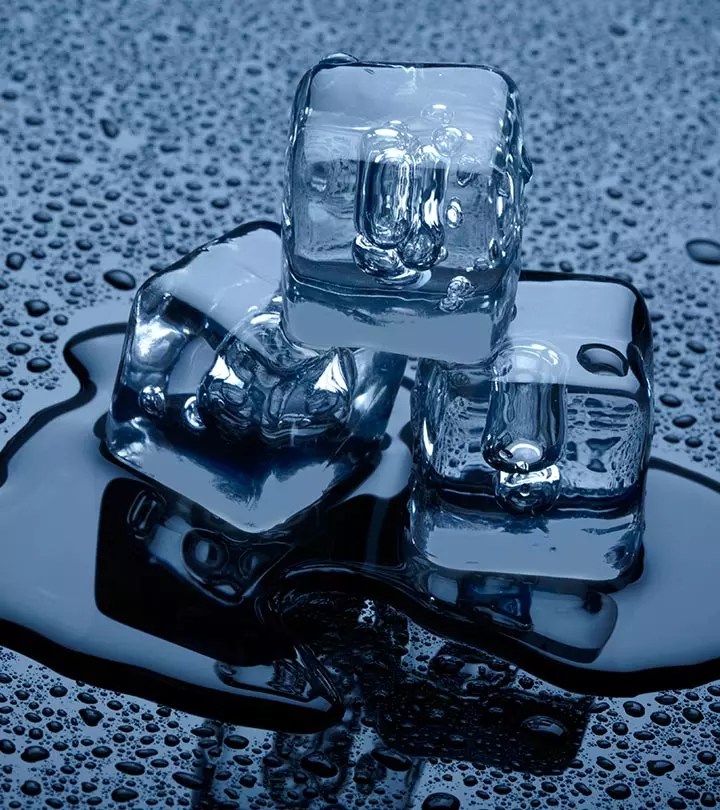
Community Experiences
Join the conversation and become a part of our empowering community! Share your stories, experiences, and insights to connect with other beauty, lifestyle, and health enthusiasts.